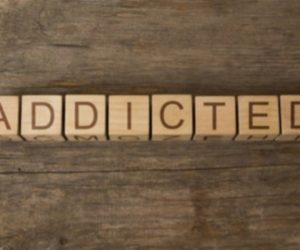The Danger of Replacing One Addiction for Another

Replacing one addiction for another is a common behavior pattern among recovering addicts. Once an addict stops using alcohol or their drug of choice, they usually pick up another obsession. The new addiction can be anything that is able to take the place of the former one. Some of the more common replacements for drugs or alcohol are smoking, food, shopping, excessive exercise and gambling.
According to addiction specialists, addiction is not about the substance being used. Addiction is seen as a solution to a person’s emotional needs. When an addict stops using their drug of choice, they still have to cope with unmet emotional needs. This is why they will switch their attention to something else. Unresolved emotional issues will push recovering addicts toward new obsessions. The pleasure they receive from these new vices temporarily satisfies their emotional craving for what they are lacking. A gambler is willing to lose everything they have just to experience the high they feel when they win. Every compulsion offers the addict some kind of release from anxiety and unmet emotional needs.
Small Indulgences can Lead to Bigger Problems
Minor indulgences will help a recovering addict stay sober. Many recovering alcoholics will indulge in a sweet snack to replace the sugar in alcohol. Indulgences can be helpful at times, but when they become addictive, they are no longer helpful. Addictions are internal problems that are acted out in compulsive behavior. If an addict feels out of control and acts that way it is because he or she is out of control. Some people become compulsive shoppers. They buy excessively, not out of need but because they are out of control. They build up credit card debt that will take years to pay off. The merchandise they buy usually winds up in a closet or drawer and they forget they even have it. It is the high they receive from the purchase and the perceived reward the merchandise will bring them that have them hooked on shopping.
Having the Right Recovery Tools Makes a Difference
The cycle of addiction can be stopped if the addict is equipped with the right tools. To address the issue of addiction transfer, the addict must learn to put into effect what they have learned in therapy. They should also be assessed for co-occurring mental disorders that may require medication to treat the symptoms they may be experiencing. Learning to take care of them self holistically is another important tool in gaining control over their life. The addict must learn to how to accept and love them self, no matter what has happened in the past or what the situation is now. The addict has to realize that there is hope and things can get better, but they have to work at it. Negative self-talk has to stop and be replaced with self love and positive affirmations.
Taking one day at a time and having a strong support system when things get tough are both important to any recovering addict. Once the major addiction has been dealt with, the addict will be able to address the other issues that they are struggling with that may have led to the addiction. Psychological therapy can delve deep into the psyche and uncover hidden or suppressed issues. As these emotional traumas are dealt with, the need to self-medicate them will disappear. It is a process that takes time and courage on the part of the addict. Once the problems are out in the open they can be dealt with, understood, accepted, forgiven and let go of. That is the process of overcoming emotional issues and renewing the mind in a healthy, positive way. Once this is accomplished, the addict is free to begin life anew.
If you or a loved one needs help with abuse and/or treatment, please call the WhiteSands Treatment at (877) 855-3470. Our addiction specialists can assess your recovery needs and help you get the addiction treatment that provides the best chance for your long-term recovery.
